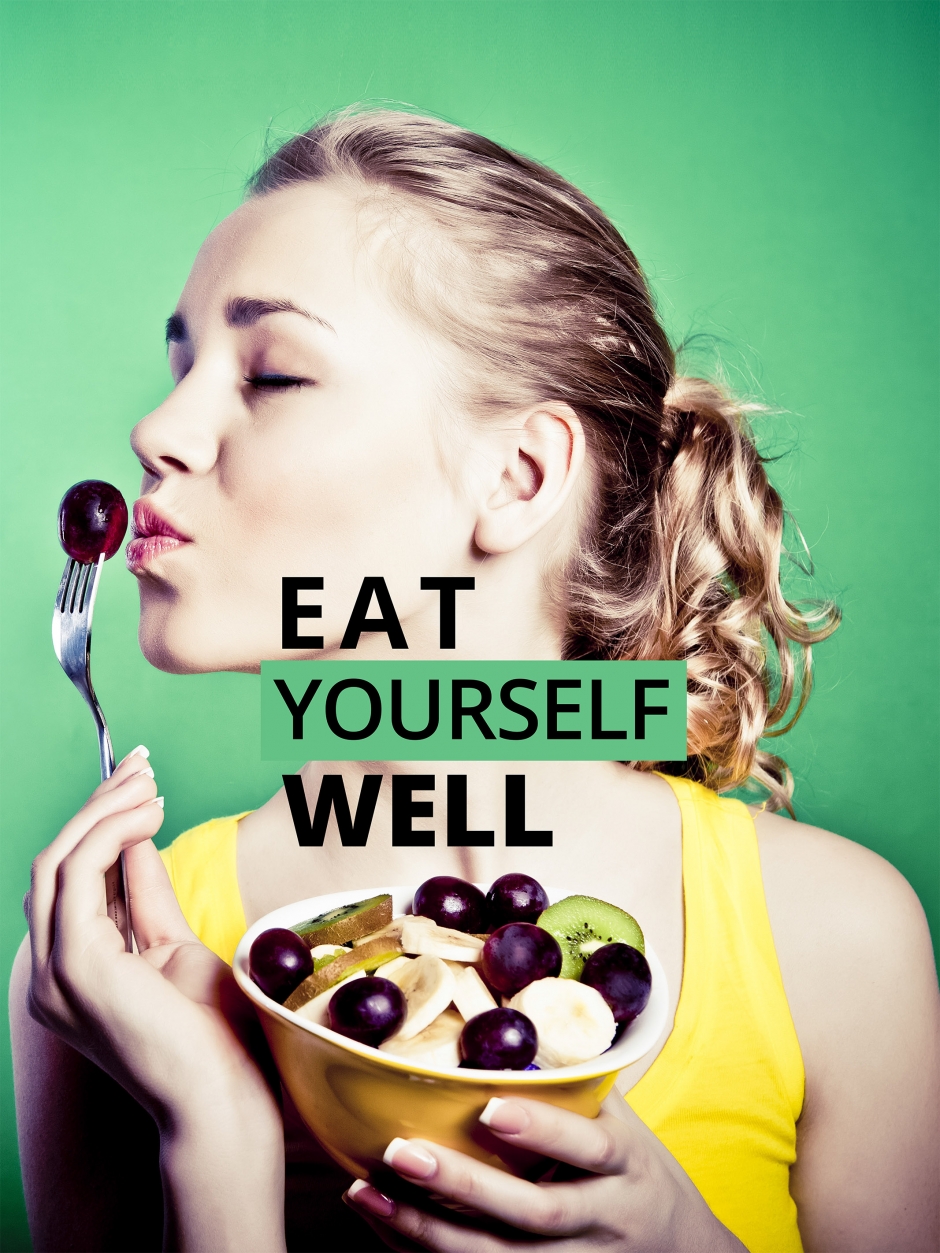Author Rachel Kelly believes that food can be a valuable tool in achieving a positive state of mind
“Let food be thy medicine and medicine be thy food” said the Greek physician Hippocrates more than two thousand years ago.
Despite such age-old wisdom, it was only after two serious bouts of depression that I’ve followed his advice and learnt how medicinal food can truly be. Initially, I was treated with antidepressants.
But their debilitating side effects – I put on a stone – meant that increasingly I’ve searched for other ways to treat my anxiety. Eating carefully has hugely helped me to manage my low mood and tendency to anxiety, and I’m not alone.
More and more research is being done to show the impact of food on our emotions. Pioneers in the growing field of ‘food therapy’ are breaking new ground: researchers at Louisiana State University are even treating post-traumatic stress disorder with the common blueberry, and yielding positive results.
I was lucky enough to be able to turn to Alice Mackintosh, a highly respected nutritionist who works at The Food Doctor, to help me choose a diet that has improved my mood.
Here are the tips that have helped me improve the relationship between my food and mood.
- Add a dash of colour
My first colourful tip is to eat foods that reflect the many colours of the rainbow; and not only because it’s a joyful experience to fill your plate with as many vibrant hues and shades as you can possibly find.
Greens, purples, oranges, and blues – all these are found in fruit and vegetables. They are key sources of the vitamins and minerals that are essential for life and happiness. These colourful plant-based foods are full of phytonutrients, natural compounds that prevent disease and help our bodies achieve optimum health and improve our mood.
Meanwhile white foods, be they white bread, pasta or rice, have had much of their nutritional goodness processed out of them.
- Go with your gut
Increase the amount of ‘good bacteria’ in your system. For decades, antibiotics have been used both in medicine and the food chain, which in turn has reduced the presence of good and bad bacteria in our bodies.
We need to try and up our supplies of good bacteria. They help speed up our metabolism and improve our mood by producing serotonin and dopamine which are conducive to calm. Thus the birth of ‘psychobiotics’, a catchy name for the live organisms that, when eaten in adequate amounts, can help improve people’s mood. Not for nothing do we use the expression ‘gut feeling’, our gut being connected to our emotional limbic system.
Probiotic foods include sauerkraut (a type of fermented cabbage), kimchi (a vegetable dish) and tempeh (a soy product). I must confess I’ve never managed to eat any of them. Probiotic or live yoghurt is easier for most of us. It’s also proved relatively easy to try and eat the pre-biotics that feed our good gut bacteria. They include onions, leeks, artichokes, garlic and asparagus.
Trying to avoid factory-produced meats with high levels of antibiotics is another good approach. Organic meat, which shouldn’t have been exposed to as many antibiotics – but given its expense it’s even easier to cut down on meat altogether.
Although I know it’s more effective to eat the right foods rather than take a pill, and I do manage to eat industrial quantities of yoghurt, sometimes I resort to taking a probiotic supplement in the morning. I’ve popped a smiley face on the bottle to remind me that good bacteria can make me jollier.
- Boost your ‘Bs’
Thirdly, I now try and seek out peas, broccoli, spinach, asparagus, chickpeas, soya beans, peanuts, wholegrain rice and porridge. All are rich in B vitamins. Many people who suffer low mood have been found to be low in vitamin B. It may even be worth investing in a supplement to make sure you’re getting your fill. But we all know eating the right foods is best.
My final tip is to try and cultivate a loving and empowering relationship between your brain and the food on your plate. For me, and I suspect it’s the same for most people, our attitude to food is as much about emotion as it is about satisfying hunger.
It is a case of mind over platter.
So, instead of allowing a rush of emotion to drive me towards comfort food, I try to stop and ask my body what it actually needs from me. Try not to feel deprived by your positive choices, but rather as if you are gaining something extra; be it the steady and relaxing effect of a bowl of vegetable soup or how much better you might sleep after a grounding bowl of warm porridge at night. And remember the wise words of one Ancient Greek philosopher.
(CTA) Rachel Kelly’s memoir, Black Rainbow: how words healed me – my journey through depression, is published by Hodder & Stoughton and is available for purchase on Amazon. The Black Rainbow app is available for download on the Apple App store and Google App store for free. All author proceeds to SANE and United Response.





